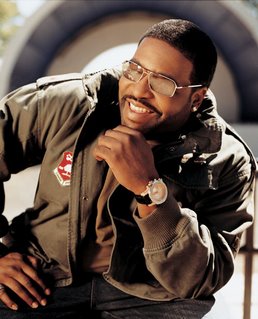
Growing up we always had a celebration between Christmas and New Year's. Today is my grandfather's birthday and had he lived he would be 87. Behind my Dad he was the first man I loved unequivocally.
We were kindred spirits in a way, enjoying each other's sense of humor, outlook on life, idealism and romanticism.
We also shared some physical traits. Relations always told me how I had his "Roman nose." Our middle fingers on each hand turn outward at the tips and our detached earlobes hang rather low. My mom and I also share these traits as well as a romanticized fondness for Grandpa.
He could be an exasperating male chauvinist, particularly infuriating my headstrong modern-thinking grandmother. But he was never that way with me. He instilled in me the sense that my brains were just as beautiful as my smile. And that even when my smile was filled with braces and when my movements were only those of an awkward gangly young girl so unsure about herself that I could still be beautiful in his eyes.

I never felt unsure or insecure or irrelevant around him. He made me, and probably the rest of us, feel as if we were the most important people in the room. His attention to what we had to say, his interest in our thoughts was an early introduction to the headiness of conversation that would help to shape my choice of career.

When I first moved back to Cleveland and took a job with Sun Newspapers, I was unable to afford my own apartment. My grandparents took me in for six months so I could save some money and eventually move out on my own. I enjoyed their routine, two highballs, a toast and a kiss before dinner each night. Grandpa and I would stay up to watch "Newhart" and "The Tonight Show," laughing about the same stuff.
We would quietly read together; he in his Lazy Boy, me cuddled on the sofa. He was forever misplacing his [gl]"asses" (which is what my cousin used to call glasses when his was little). And he would ask me all kinds of questions about my day and my job and politics and culture. Maybe it was all an act, but to me he always seemed genuinely interested in me.
The man I married is not unlike him. In fact, I think Grandpa got a kick out of Danny, calling him my crazy Irish boyfriend. He used to call Danny a brown-noser, but he was really no different than Grandpa.

On my wedding day, I remember pulling up to St. James' Church in Lakewood and he was the first person I saw. My favorite photo of that day is him pretending to shield his eyes from the bride before walking into the church. He and my grandma delayed their 50th anniversary party because of our wedding. Of course I didn't realize that until we were at their party in October and Grandpa, ever the emcee, introduced Danny and I last and explained that because we had to get married in August, they were forced to delay their party.
I danced with him that night and my mom and I said later that it was the last time we did. His health began to deteriorate, first in what seemed minor annoyances. His legs weren't steady and walking became difficult. He was hospitalized several times. I was one of his regular visitors.
The last time I saw him was in Fairview Hospital a few days before he died. I had stopped there after picking up Ryan and Patrick from daycare. Grandma and my mom said he'd like to see me. I was worried about bringing the boys and their runny noses up to see him. But Gram assured me that it would make him happy to see them. Ryan was 2 and Patrick only 5 months old. Ryan climbed onto his bed, saw the band-aid on his bald head and said, "Grandpa do you have a boo boo?"

He laughed heartily at little Ryan. A few days later in the early morning hours with Gram by his side, his heart gave out.
Over the summer, I had the chance to go through his trunks filled with all kinds of things he saved over his lifetime. The contents of the trunk tell of the hopes, dreams and experiences of him as a boy and a man. I need to get back because I'd like to talk to my Gram more about their lives and I'd like to just sit and remember with her.




